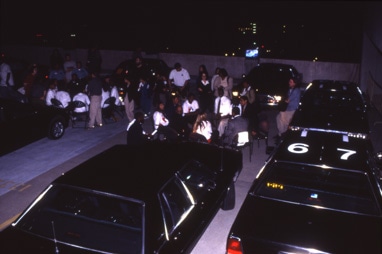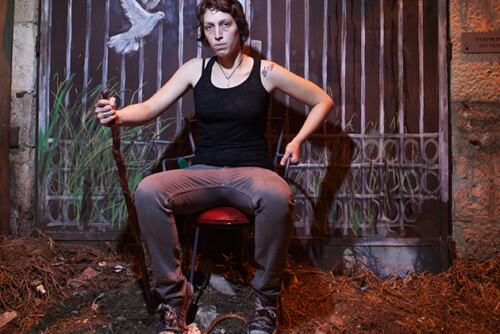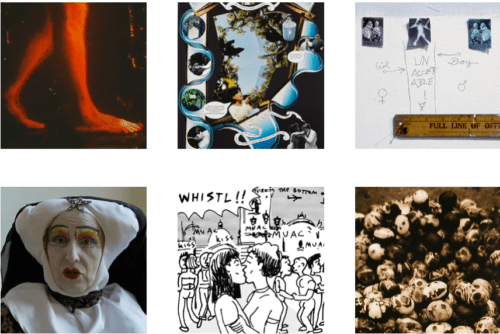What We Have Lost
Laura Bush’s speeches made clear that we have, at the very least, lost control of the slogans and catchphrases that have come to be associated with women’s liberation and radical feminist politics. When we hear of the right of women to “laugh out loud,” or of the freedom to fly kites, we may like to think of Hélène Cixous’s Medusa or Monique Wittig’s singing, kite-flying guérillères; 1 but now, sadly, we must also think of Laura Bush, who has absorbed these metaphors into speeches that define the nation as an “us” made up solely of Americans who will “hold our families even closer . . . and who will be thankful for all the blessings of American life.” She even goes so far as to invite all Americans “to join our [the Bush] family in working to insure that dignity will be secured for all the women and children of Afghanistan.” 2 This appropriation misuses the suffering of Afghan women; but it also actively works to reduce feminism, now stripped of its radical sexual and anticapitalist agendas and of its struggle to imagine kinship relations differently, to the philanthropic gestures of the Bush family.
One interesting, if uncomfortable, question in all of this is how feminist language could so easily be appropriated in this way. A few days before I began to write this essay, I attended the National Women’s Studies Association conference, where many women complained that “our” metaphors and slogans had been robbed. We have been robbed, but do we necessarily want our slogans back? While the radical spirit of the 1960s and 1970s still produces nostalgia for a time when feminism seemed less tame, less institutionally acceptable, do we not also feel a twinge of shame when we recognize how close some of the language of second-wave feminism can seem to the “us and them” context in which it now appears? But what shall we do with our shame, and how can we prevent it from turning into a form of melancholia that will render us politically ineffective? 3
We have lost more than our slogans. Like the left, we have lost the belief that adherence to “the cause” will provide us with what Brown has called “a clear and certain path toward the good, the right and the true?” 4 In the wake of what feels like the failure of revolutionary politics, many of us also feel that we have lost our communities, but it may be that community happens precisely in the space of what is lost. Jean-Luc Nancy reminds us, “At bottom, it is impossible for us to lose community . . . Community is given to us – or we are given and abandoned to the community: a gift to be renewed and communicated, it is not a work to be done or produced.” 5 “Community,” according to Nancy, is “far from being what society has crushed or lost”; rather, it is “what happens to us – question, waiting, event, imperative – in the wake of society.” 6 As we feel and mourn our losses, as we lack clear or collectively agreed on paths or responses, uncertainty becomes our new foundation and is perhaps the precondition for us to be able to do what Nancy calls the task of “thinking community, that is, of thinking its insistent and possibly still unheard demand, beyond communitarian models or remodelings.” 7
- Monique Wittig, Les Guérillères (Boston: Beacon Press, 1985), 84.[↑]
- I am, of course, referring to Hélène Cixous’s 1976 essay, “The Laugh of the Medusa,” Signs 1 (Summer 1976): 875-99. Early in her radio address to the nation on November 17, 2001, Laura Bush stated, “children aren’t allowed to fly kites; their mothers face beatings for laughing out loud.”[↑]
- The political utility of the affect of shame has been central to recent discussions in queer theory, and feminism might usefully benefit from this work as it continues to address the problem of internal oppression. For further reading on shame, see Douglas Crimp, “Mario Montez, For Shame,” in Regarding Sedgwick: Essays on Queer Culture and Critical Theory, ed. Stephen M. Barber and David L. Clark (New York: Routledge, 2000), 57-70; Eve Kosofsky Sedgwick, “Queer Performativity: Henry James’s The Art of the Novel,” GLQ 1, no. 1 (1993): 1-16; and Michael Warner, The Trouble With Normal: Sex, Politics, and the Ethics of Queer Life (New York: Free Press, 1999).[↑]
- Brown, “Resisting Left Melancholia,” 460.[↑]
- Jean-Luc Nancy, The Inoperative Community, ed. Peter Connor (Minneapolis: University of Minnesota Press, 1991), 35. Nancy distinguishes community from a “communion that fuses the egos into an Ego or a higher We” (Nancy, 15), a communion that effectively describes the oppressive and potentially fascistic consequences of the Bush administration’s mobilization of the language of “us” and “them.” For a helpful discussion of this language, see John Michael, “Beyond Us and Them: Identity and Terror from an Arab-American’s Perspective,” South Atlantic Quarterly 102 (2003): 701-28.[↑]
- Nancy, Inoperative Community, 11.[↑]
- Nancy, Inoperative Community, 22.[↑]



